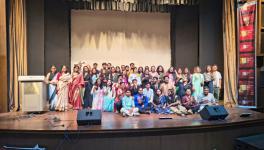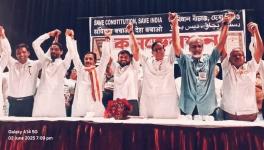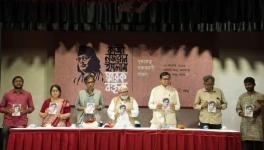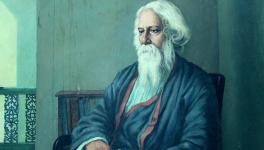The Last Lap of a 40-Year Journey at Kolkata’s Iconic Coffee House
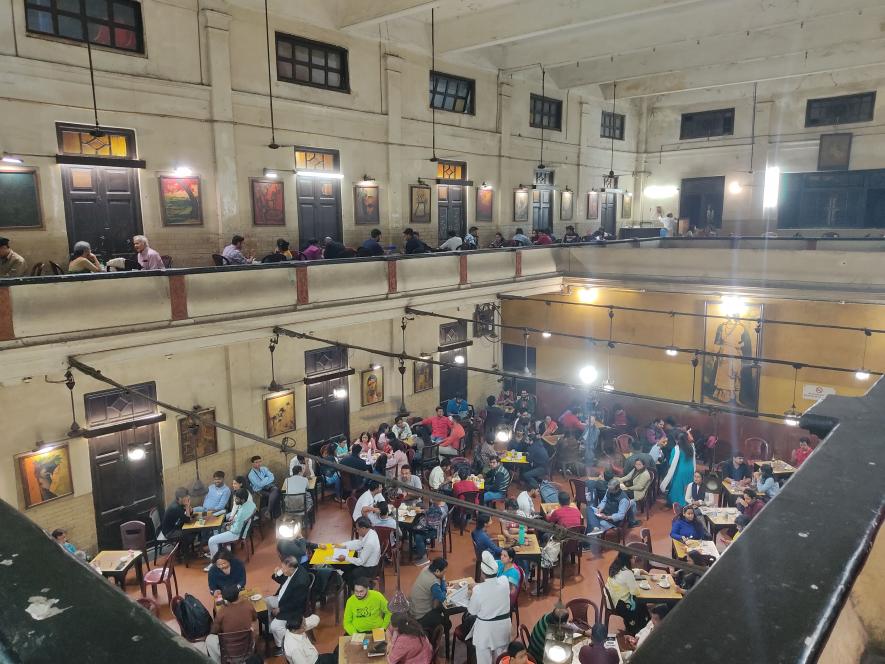
Inside view of the Indian Coffee House. Photo by Saurav Kumar
The identity of Indian Coffee House (ICH) is that of a surviving heritage in contemporary times and in the city of joy, Kolkata that of an iconic eatery. An eatery that has a special place in the hearts of several generations cohabiting in the city.
The place that evolved through the struggle of its workers is about to witness a less-known colossal event in the coming days with respect to one of its workers. A waiter at the coffee house is on the verge of retirement after his glorious long service of 40 years.
A lean man in a traditional spotless white uniform, number ‘1’ inscribed on his left chest side, wearing a white hat with silver-green paraphernalia can be seen moving through the smoke emanating from an endless number of cigarettes. Sixty-four-year-old Sanjeevan Gaur is inching towards the end of his four decades-long association as a waiter with the ICH. On January 1, 2023, the veteran’s service will come to an end.
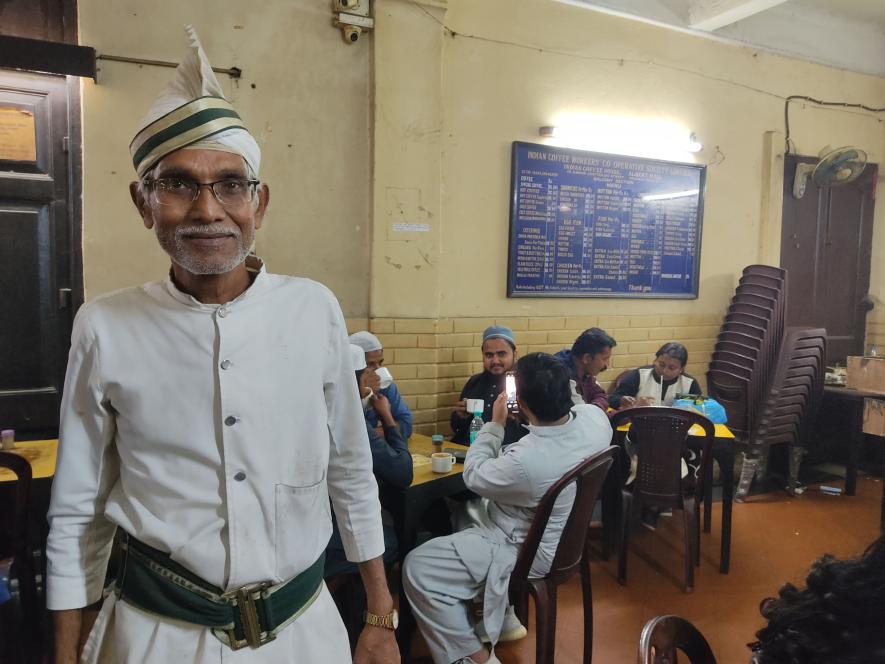
Sanjeevan Gaur at ICH. Photo courtesy: Saurav Kumar
Being equipped with good health and fitness in his mid-sixties is one of his biggest achievements. With a smile on his face, he concedes that he will miss the iconic coffee house.
Sanjeevan told NewsClick, “The practice of moving on the wooden stairs up and down is surreal at this age and soon, I will take the last lap of the gallery.”
Subtly taking pride in the longest stint among other staff members, Sanjeevan fondly added, “I have enjoyed discharging service at the Indian Coffee House and had the privilege of serving people like Soumitra Chatterjee, Amartya Sen, and Manna Dey. The uncountable number of visitors recognise me, my hospitality and my order-taking abilities.”
According to him, his movement across floors of the coffee house following the ring of the bell post-order placement will be missed to the core. The routine of serving approximately 5,000 visitors every day will soon fade from reality to nostalgia.
Gaur hails from the Faizabad district of Uttar Pradesh and started working as a waiter in 1982 after his father retired from the same post. In the next few years, his siblings followed suit and became servers at the ICH.
As per coffee house board member Dipankar Dasgupta, Sanjeevan – with a proactive and friendly attitude – has stood out as a role model for other employees.
“He is a well-known face for many in the adda culture of the coffee house and his sudden absence will definitely elicit murmurs among regular visitors,” Dipankar told NewsClick.
Zahid Hussain, manager of the coffee house, told NewsClick, “I joined the coffee house a decade after Gaur, but developed a lifelong relationship with him. His retirement will create a void in the functioning of the ICH.”
In Zahid’s opinion, flawless service on the coffee house floor by people like Sanjeevan has preserved the simplicity and lure of ICH, despite mushrooming of cafe parlours across the city.
The coffee house opposite the illustrious Presidency College was the go-to place for personalities like Rabindranath Tagore, Satyajit Ray, Manna Dey, Amartya Sen, Mrinal Sen, and Aparna Sen.
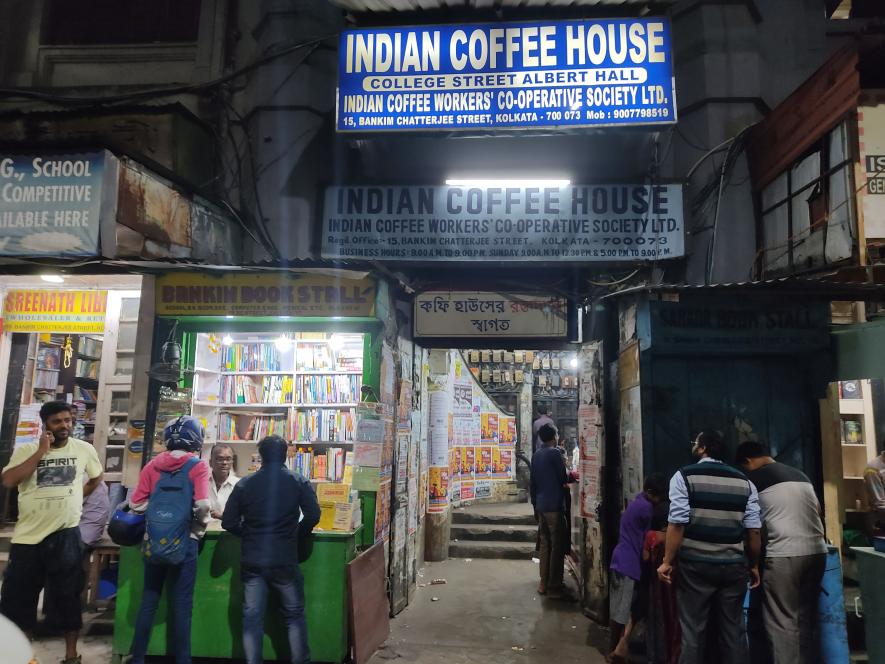
Indian Coffee House, Albert Hall, Kolkata. Photo by Saurav Kumar
The Albert Hall ICH was founded in April 1876 by philosopher and social reformer Keshab Chandra Sen. It evolved to be a meeting place for the city’s intelligentsia and later became a place for the commoners too.
The ICH chain was started in 1936 by the Coffee Cess Committee, but reeled under a threat of closure in the mid-1950s. By 1951, the decision to hand over coffee houses to private players was taken by the Coffee Board.
The historic moment arrived when the labour union of the Coffee Board spoke about the rights of workers and veteran Communist leader A K Gopalan came up with a solution to form a coffee cooperative society led by workers.
On August 19, 1957, India’s first Coffee Board Workers’ Co-operative Society was formed in Bangalore.
Get the latest reports & analysis with people's perspective on Protests, movements & deep analytical videos, discussions of the current affairs in your Telegram app. Subscribe to NewsClick's Telegram channel & get Real-Time updates on stories, as they get published on our website.












